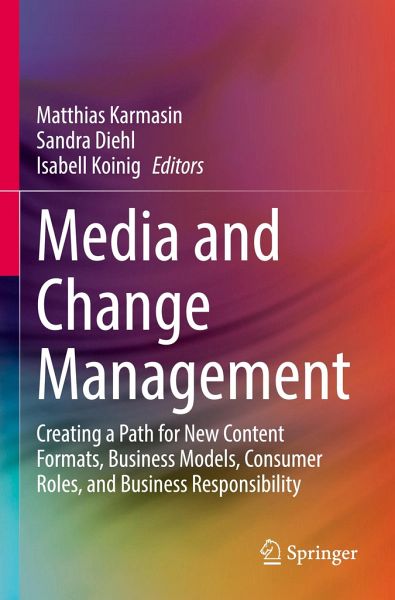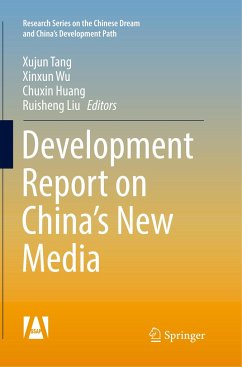
Media and Change Management
Creating a Path for New Content Formats, Business Models, Consumer Roles, and Business Responsibility
Herausgegeben: Karmasin, Matthias; Diehl, Sandra; Koinig, Isabell
Versandkostenfrei!
Versandfertig in 6-10 Tagen
129,99 €
inkl. MwSt.

PAYBACK Punkte
65 °P sammeln!
Change management is not just affected globally by environmental and social conditions, including political and technological changes, but also through convergence, which helps conceptualize change over the past decades. The media industry, in particular, is being challenged by the rise of social media, the crisis of refinancing especially for quality news media, the 'misinformation epidemic', and the changing role of legacy media. The evolving nature of media usage and communication, the rise of produsage and influencers, and intermediaries and their personalized algorithmic content are also ...
Change management is not just affected globally by environmental and social conditions, including political and technological changes, but also through convergence, which helps conceptualize change over the past decades. The media industry, in particular, is being challenged by the rise of social media, the crisis of refinancing especially for quality news media, the 'misinformation epidemic', and the changing role of legacy media. The evolving nature of media usage and communication, the rise of produsage and influencers, and intermediaries and their personalized algorithmic content are also factors that impact the industry, along with data privacy and privacy management, and the "new responsibilities" of companies such as sustainability, agility and resilience, etc.
This book focuses on permanent change management in the media and related industries. It provides insights into the most common and crucial phenomena of media and change management in general, while also revealing some more specific issues brought about by technical and social innovations. The authors expand the meaning of media management beyond the management functions within the industry to include the management of different media. The book serves as a useful guide for researchers, students, and practitioners alike, as they are all affected by change processes.
This book focuses on permanent change management in the media and related industries. It provides insights into the most common and crucial phenomena of media and change management in general, while also revealing some more specific issues brought about by technical and social innovations. The authors expand the meaning of media management beyond the management functions within the industry to include the management of different media. The book serves as a useful guide for researchers, students, and practitioners alike, as they are all affected by change processes.














